Double Trouble

Jordan Peele’s Us didn’t really scare me, and that’s not a complaint. I didn’t find it particularly suspenseful, which is also not a criticism. Those two sentences reflect not the craft of Us as a horror movie but the writer/director’s use of metaphor and symbolism – an area where he overplays his hand and gets into serious trouble.

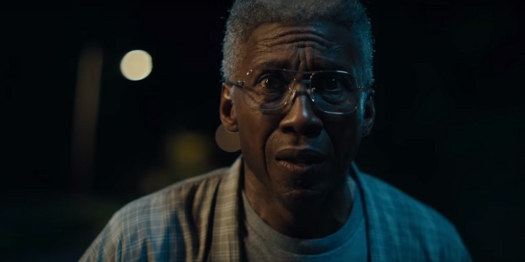 Sometimes the success or failure of a movie, book, or television show hinges on a short passage. If that small part works, so does the whole; if the crucial bit comes up short, the entire enterprise falls apart. For me with the third season of creator/writer Nic Pizzolatto’s HBO series True Detective, the moment comes late in the finale when former cop Wayne Hays drives up to the house of a person he strongly suspects is Julie Purcell, who disappeared with her brother Will 35 years ago and has eluded him ever since.
Sometimes the success or failure of a movie, book, or television show hinges on a short passage. If that small part works, so does the whole; if the crucial bit comes up short, the entire enterprise falls apart. For me with the third season of creator/writer Nic Pizzolatto’s HBO series True Detective, the moment comes late in the finale when former cop Wayne Hays drives up to the house of a person he strongly suspects is Julie Purcell, who disappeared with her brother Will 35 years ago and has eluded him ever since.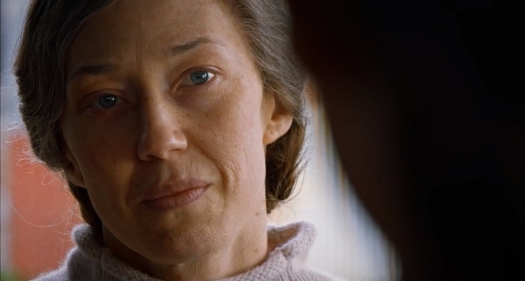 The question of what actually happened with Nora hangs over the finale of The Leftovers, but it is finally unknowable in any conclusive sense. Yet as much as the finale’s approach invites speculation, questions, and theories, it also tells us how to process it.
The question of what actually happened with Nora hangs over the finale of The Leftovers, but it is finally unknowable in any conclusive sense. Yet as much as the finale’s approach invites speculation, questions, and theories, it also tells us how to process it.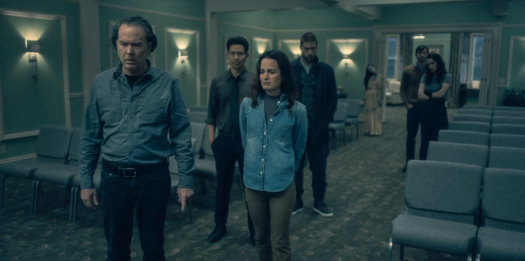 Revisiting Netflix’s The Haunting of Hill House helped clarify the fundamental dissonance of the show – that running counter to its hopeful, tidy conclusion is something far messier in both its ghost and family stories. Yet the early episodes carve out room for readings that substantially darken the whole, undermining without negating the tone of its final minutes.
Revisiting Netflix’s The Haunting of Hill House helped clarify the fundamental dissonance of the show – that running counter to its hopeful, tidy conclusion is something far messier in both its ghost and family stories. Yet the early episodes carve out room for readings that substantially darken the whole, undermining without negating the tone of its final minutes.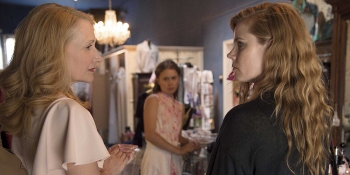 Adapted from Gillian Flynn’s debut novel, HBO’s Sharp Objects is a whole bunch of greatness that, finally, amounts to not much of anything.
Adapted from Gillian Flynn’s debut novel, HBO’s Sharp Objects is a whole bunch of greatness that, finally, amounts to not much of anything.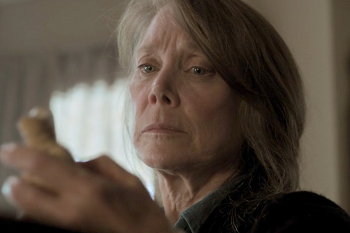 When the seventh episode of Hulu’s Castle Rock – titled “The Queen” – immediately felt very familiar, we shouldn’t have been too surprised that it drew not from Stephen King but from a
When the seventh episode of Hulu’s Castle Rock – titled “The Queen” – immediately felt very familiar, we shouldn’t have been too surprised that it drew not from Stephen King but from a 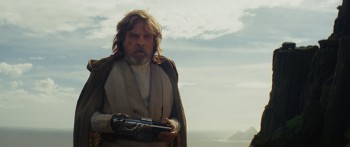 Writer/director Rian Johnson gives Star Wars fans just about everything they could want in The Last Jedi, assuming they didn’t require it to follow the story beats, narrative cleanliness, and relatively consistent tone of The Empire Strikes Back. That, of course, means that Johnson has given a large number of fans what they didn’t want.
Writer/director Rian Johnson gives Star Wars fans just about everything they could want in The Last Jedi, assuming they didn’t require it to follow the story beats, narrative cleanliness, and relatively consistent tone of The Empire Strikes Back. That, of course, means that Johnson has given a large number of fans what they didn’t want.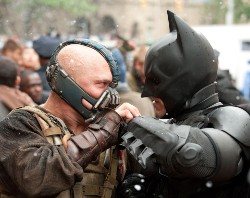 Christopher Nolan’s The Dark Knight Rises is an incredibly ballsy movie. I don’t mean its scope and ambition, both of which are indeed impressive. I mean the audacity of choices that could have easily backfired: following Heath Ledger’s nuanced, razor-sharp Joker with the nearly blank thug Bane; recycling Batman Begins’ sinister plot, doomsday machine, and League of Shadows; inserting teenage-boy masturbation fantasy Catwoman into a universe largely devoid of sex appeal and camp (and non-Rachel Dawes women, period); crafting a lengthy, convoluted first act made even less comprehensible because of the sound design and score; and relegating Batman to captivity of one sort or another for the vast majority of the movie’s first 115 minutes.
Christopher Nolan’s The Dark Knight Rises is an incredibly ballsy movie. I don’t mean its scope and ambition, both of which are indeed impressive. I mean the audacity of choices that could have easily backfired: following Heath Ledger’s nuanced, razor-sharp Joker with the nearly blank thug Bane; recycling Batman Begins’ sinister plot, doomsday machine, and League of Shadows; inserting teenage-boy masturbation fantasy Catwoman into a universe largely devoid of sex appeal and camp (and non-Rachel Dawes women, period); crafting a lengthy, convoluted first act made even less comprehensible because of the sound design and score; and relegating Batman to captivity of one sort or another for the vast majority of the movie’s first 115 minutes.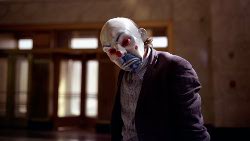 How about a magic trick? I shall transform Christopher Nolan’s 144-minute The Dark Knight into a significantly better movie by trimming eight minutes from it.
How about a magic trick? I shall transform Christopher Nolan’s 144-minute The Dark Knight into a significantly better movie by trimming eight minutes from it.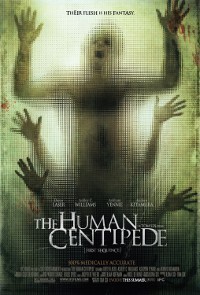 How is The Human Centipede (First Sequence) not among the most transgressive and repulsive movies ever made? For those not familiar with the premise of writer/director Tom Six’s feature, there’s no reason to be coy about it. The Internet Movie Database plot summary of The Human Centipede
How is The Human Centipede (First Sequence) not among the most transgressive and repulsive movies ever made? For those not familiar with the premise of writer/director Tom Six’s feature, there’s no reason to be coy about it. The Internet Movie Database plot summary of The Human Centipede 